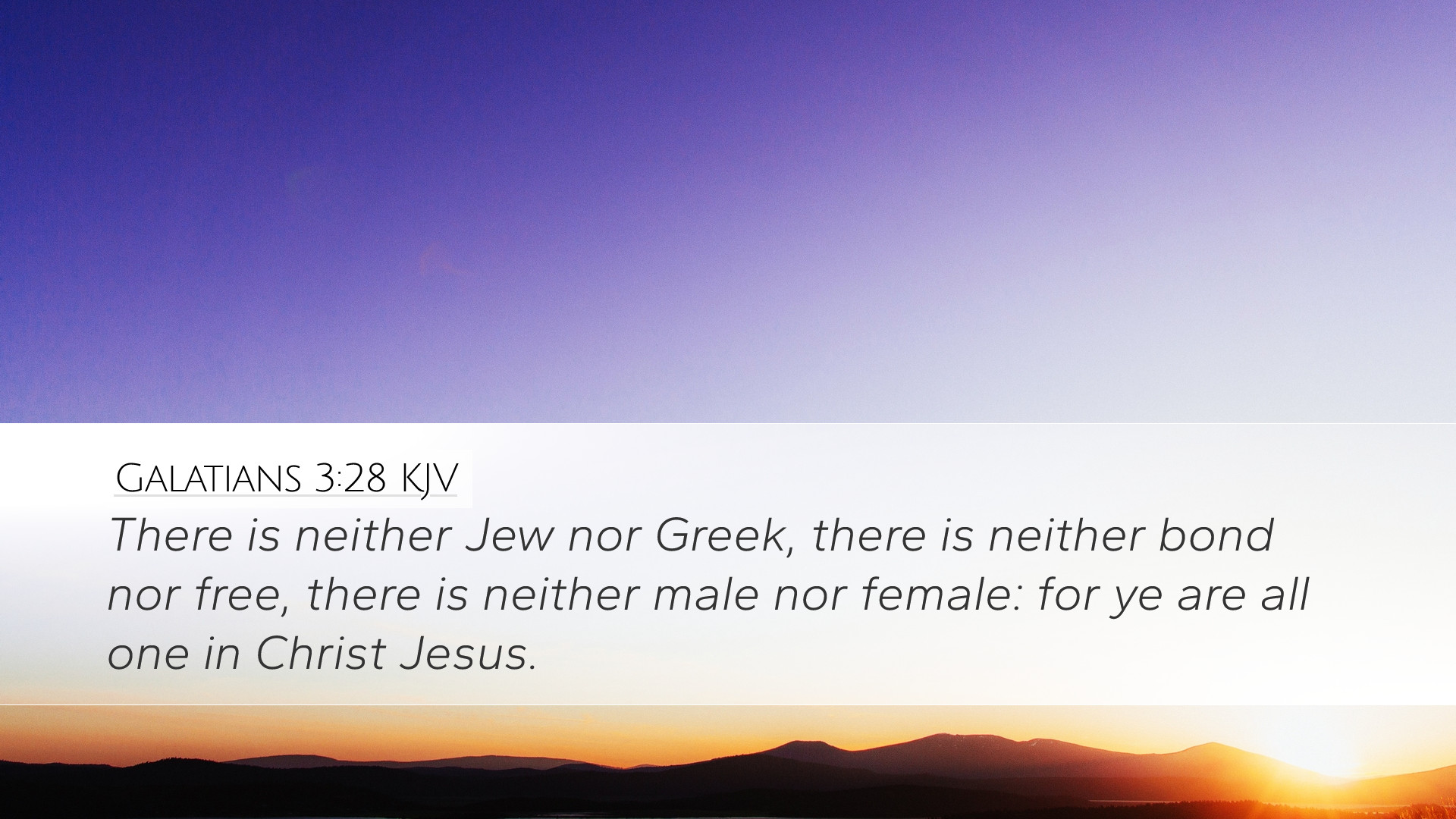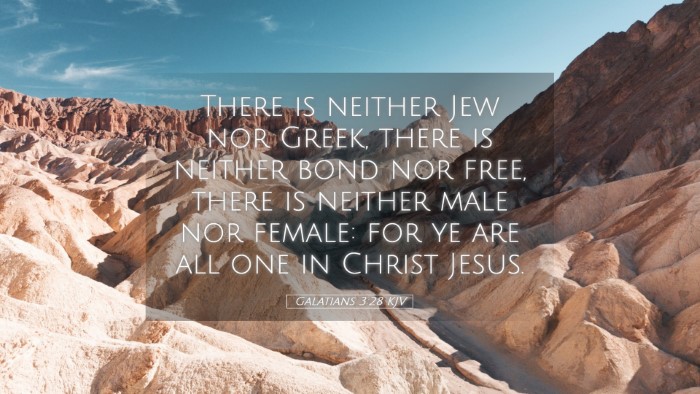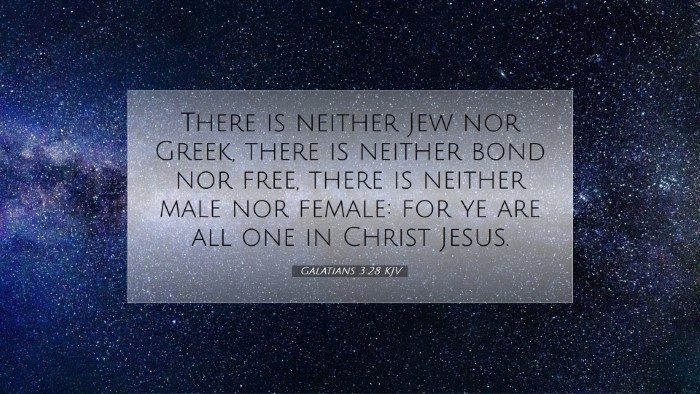Commentary on Galatians 3:28
Verse: "There is neither Jew nor Greek, neither slave nor free, nor is there male and female, for you are all one in Christ Jesus." (Galatians 3:28)
Introduction
This verse is one of the most profound declarations in the New Testament, emphasizing the radical equality and unity of believers in Christ. The Apostle Paul, in his epistle to the Galatians, addresses the issues of identity and inclusiveness within the Christian community. By declaring that there is no distinction among believers based on ethnicity, social status, or gender, Paul challenges societal norms and highlights the transformative power of faith in Christ.
Exegesis
In order to fully appreciate the depth of Galatians 3:28, we must approach it from a historical and theological context. Paul writes amidst tensions in the early Church where Jewish Christians often regarded themselves as superior to Gentile believers. Furthermore, societal structures placed significant divides based on gender and social hierarchy.
Jew and Greek
Matthew Henry emphasizes that the distinctions between Jew and Gentile represented deep-seated divisions. The Jews viewed themselves as God's chosen people, and Gentiles were considered outsiders. Paul’s assertion that "there is neither Jew nor Greek" signifies the abolishment of this religious and ethnic barrier. In Christ, the former distinctions fade, and unity takes precedence.
Slave and Free
Albert Barnes points out that the social structure of the Roman Empire was sharply divided between slaves and free persons. By stating that "there is neither slave nor free," Paul advocates for an egalitarian community within the Church. This declaration implies that believers experience a new social identity where existing status does not determine one's value before God.
Male and Female
Adam Clarke elaborates that the phrase "neither male nor female" addresses gender distinctions that often dictated roles and worth in the broader culture. Paul’s claim here not only affirms the worth of women in the Christian faith but also calls for a radical shift in how genders relate to one another within the Church community. Every believer, regardless of gender, is equally valued and has equal access to God's promises.
Theological Implications
The implications of Galatians 3:28 reach beyond the immediate audience of Paul’s letter. It speaks to the inclusivity of the Gospel message, which transcends cultural, social, and gender barriers. This radical unity is foundational for Christian fellowship, and it compels the Church to pursue justice and equality within its ranks.
- Unity in Diversity: The Church is called to reflect diverse backgrounds united in Christ.
- Redefining Identity: Believers' primary identity is rooted in being a child of God, not in societal labels.
- Empowerment for Service: Each believer is empowered to serve and contribute to the body of Christ regardless of their past social standing or gender.
Practical Applications
As theologians and pastors, it is imperative to take practical steps to embody the truth found in Galatians 3:28 within our congregations and communities.
- Fostering Inclusive Communities: Actively work to create spaces where all members feel valued and empowered to serve.
- Emphasizing Acceptance: Teach congregants to embrace one another with love, reflecting the inclusive nature of the Gospel.
- Challenge Societal Norms: Equip believers to confront societal prejudices and advocate for justice and equality as modeled by Christ.
Conclusion
In conclusion, Galatians 3:28 serves as a powerful reminder of the revolutionary nature of the Christian faith. The message of unity and equality under Christ is essential for the Church's witness in a divided world. As we continue to reflect on this scripture, may we recognize our collective identity as one in Him, fostering an environment of love, acceptance, and mutual respect among all believers.


